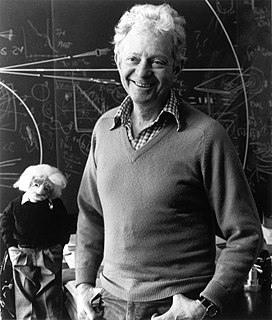A Quote by Marvin Minsky
Daniel Dennett is our best current philosopher. He is the next Bertrand Russell. Unlike traditional philosophers, Dan is a student of neuroscience, linguistics, artificial intelligence, computer science, and psychology. He's redefining and reforming the role of the philosopher.
Related Quotes
When I think about discussions at the Society for Philosophy and Psychology, a group which includes not only philosophers and psychologists, but also computer scientists and linguists, it is noteworthy that one can't always tell just from the content of particular contributions from the audience, whether a given questioner is a philosopher or an empirical scientist.
Men are not philosophers, but are rather very foolish children, who, by reason of their partiality, see everything in the most absurd manner, and are the victims at all times of the nearest object. There is even no philosopher who is a philosopher at all times. Our experience, our perception is conditioned by the need to acquire in parts and in succession, that is, with every truth a certain falsehood.
Philosopher Bertrand Russell suggested that 'Men are born ignorant, not stupid. They are made stupid by education.' And, it was Albert Einstein who explained, 'Insanity: doing the same thing over and over again and expecting different results.' So which is it - stupidity, ignorance or insanity - that explains the behavior of my fellow Americans who call for greater government involvement in our lives?
BERTRAND RUSSELL, The Philosophy of Logical Atomism We've associated that word philosophy with academic study that in its own way has gotten so far beyond the layman that if you read contemporary philosophy you've no clue, because it's almost become math. And it's odd that if you don't do that and you call yourself a philosopher that you always get 'homespun' attached to it.
I have always taken as the standard of the mode of teaching and writing, not the abstract, particular, professional philosopher, but universal man, that I have regarded man as the criterion of truth, and not this or that founder of a system, and have from the first placed the highest excellence of the philosopher in this, that he abstains, both as a man and as an author, from the ostentation of philosophy, i. e., that he is a philosopher only in reality, not formally, that he is a quiet philosopher, not a loud and still less a brawling one.
Russell's prose has been compared by T.S. Eliot to that of David Hume's. I would rank it higher, for it had more color, juice, and humor. But to be lucid, exciting and profound in the main body of one's work is a combination of virtues given to few philosophers. Bertrand Russell has achieved immortality by his philosophical writings.
I was trained as a philosopher never to put philosophers and their ideas into historical contexts, since historical context has nothing to do with the validity of the philosopher's positions. I agree that assessing validity and contextualizing historically are two entirely distinct matters and not to be confused with one another. And yet that firm distinction doesn't lead me to endorse the usual way in which history of philosophy is presented.





































